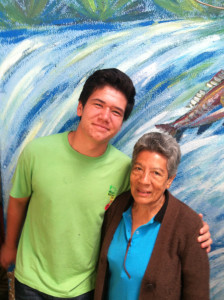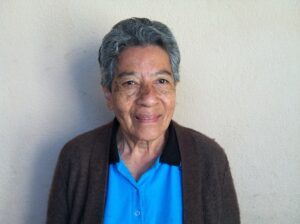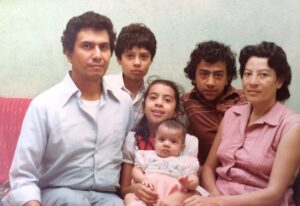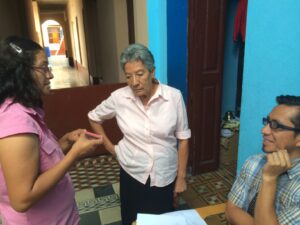
By Michael Ashcraft and Mark Ellis
When the funeral hearse pulled up at 5:00 a.m., Gladys Barrios knew what it meant. She was a Christian teacher in Guatemala, but her husband fought for the guerrillas. He espoused atheistic communism.
“I lived constantly with the possibility that someone would come and tell me, ‘I’m sorry, but they just killed your husband,’” she said. “When I saw the hearse, I thought, ‘Well, that’s it. He’s dead.’”
Guatemala’s civil war lasted from 1960 to 1996. Just like America’s Civil War, it divided families. It was a bloody conflict of betrayal and treachery as the CIA and the former Soviet Union resorted to dirty tricks and massacres in their attempt to wrest control.
While the communists fought to win the hearts of the people, evangelical Christians made huge gains as people, fearful of death on all sides, considered their eternal state. Today, the country is one-third evangelical, according to some estimates.
For Gladys, the clash of ideologies took place in her household – but with a peculiar pre-marital agreement. “I knew he was in the guerrilla before we married,” she said. “So we agreed that I wouldn’t interfere in his activities, and he would let me go to church and raise the children Christian.”

Not an army bomb plant
It turned out that the night the hearse arrived did NOT coincide with her husband’s death. Her husband, Luis Ernesto Donado, had been drinking with other high-ranking revolutionaries, and they had crashed due to intoxication. A friend died, and they asked Gladys to visit the morgue, identify the cadaver, and advise the wife who had just become a widow.
Gladys, who still serves the Lord at 70 years of age, first met Luis in night school at the Central for Men school in downtown Guatemala City. Night school was open to both sexes. At first, they were just friends. He was very smart and always got first place academically. She took second. His brains attracted her.
Gladys was 20, and Luis was three years her senior. From the beginning, she knew he was communist. At the time, revolutionaries were deeply involved in education, not just at the university level.
While they were reviled by fundamentalist Christians in America, communists were a part of the social fabric of Latin America and enjoyed greater acceptance. Most families had participants on both sides of the conflict.

Though it was part of communist doctrine to recruit new adherents, Luis never invited Gladys to join.
‘I married the guerilla’
“I admired him for being smart,” Gladys said. “From the relationship we had as friends was born another kind of relationship. We became boyfriend and girlfriend. Then we decided to get married.”
She didn’t pay attention to the Bible’s admonition that a Christian should not be “unequally yoked with unbelievers.” And, if the truth be told, she was drawn by the air of adventure implied by a man who lived dangerously.
Nuptials were celebrated in 1969.
Fighting raged in the countryside, and at night in the capital city, bands of the guerrilla traded fire with soldiers in darkened streets and alleyways. They fired mortars into the army’s barracks. Deaths mounted to an estimated 200,000 countrywide.
The army, with its spy network, hunted down active communists. Sometimes they kidnapped them off the streets and executed them surreptitiously. Sometimes they planted bombs in their cars. But they never caught a whiff of Luis’s double life. By day, he was a teacher.
“I didn’t stress out about it,” Gladys said. “I knew he could be killed at any moment, but while it didn’t happen, why was I going to be nerve-wracked? I have the kind of character of being easy-going. I didn’t get exasperated” with the danger.
Gladys was born in a Christian home. Her parents got saved with the Quakers, who evangelized under the auspices of United Fruit Co. Freedom of religion wasn’t introduced into Guatemala until the 1880s, when a liberal president invited the Presbyterians to start a church in the capital city. In the countryside people who worked with United Fruit could hear the gospel through the Quakers.
Her father, a shipment inspector in Puerto Barrios, invited Gladys to accept Jesus into her heart when she was seven years old. When United Fruit left the country under accusations of human rights abuse, Gladys’ family moved to Guatemala City to begin life anew.
She decided to become a teacher. She has been the principal for various schools. Since 2001, she has been principal for the Christian K-11 Door Bilingual School in Zone 1 of the capital. (Guatemalan high schoolers graduate from the 11th grade.)

Divergent lifestyles
While her husband spent many late nights away from home plotting the government’s overthrow, Gladys went to church. They made an odd couple, but nobody seemed to realize the divergent activities of husband and wife, she said.
They had four children. When their second son, Jorge, grew out of adolescence, he left the church and started hanging out with youths who did drugs in the Barrio San Antonio neighborhood. This was the beginning of the events that led to Luis’s salvation.
Jorge started experiencing demonic oppression. Even Gladys visibly saw three dwarf-like demons enter her house with her son late one night when she waited up him. “I wasn’t dreaming,” she remembers. “I saw them palpably.”
She froze with terror, and it took her some time to recover. Then she went to Jorge’s bedside and prayed while he was asleep.
The next day, she asked and Jorge opened up about the demonic presence. He was hearing voices. For example, the voices offered him a brand new car. Once he followed the sound of a wailing baby. He was in a daze. When he came to himself, he was in a cemetery.
Fear gripped him so powerfully that he stopped using drugs and going out with friends. He locked himself in his room.
Eventually, the prayers of his mother and family broke down the demonic stranglehold. Jorge allowed his grandfather to pray for him and reconciled with Jesus. Family members rebuked the demon.
Almost immediately, things turned for the better. God helped Jorge get a banking job, and he began attending church again. The fear left him little by little.
As he attended church, Jorge grew stronger in his faith and began to feel a call to ministry. Today he is a pastor of a Mount Zion Presbyterian church in the Colonia San Julian neighborhood in Guatemala City.
The final battle
For his entire life, Luis threw himself into the battle to “liberate the masses from the oppression of the oligarchy.” But in the end of his life, it was the fight against a mass of cancer that prompted him to respond to another battle – the one waged for his soul.
As he lay on his bed slowly succumbing to the unforgiving cancer, Luis realized that his wife had been right all along. “You did a great job raising our children,” he told her. “You really helped Jorge when he went bad.”
Luis accepted Jesus Christ into his heart just months before he died in 1999.
“Things didn’t turn out bad for me,” Gladys said. “Really our marriage was like most everybody’s. We had our fights. We just agreed to respect each other. In the end, my children are all serving in the church, and my husband got saved.”
Virtually none of the children who call her “Miss” realize the extraordinary life she’s led for 70 years. They just learn Social Studies, obey her orders and respond to her love.
Gladys Barrios is stilling winning wars for Christ.




Her husband may have turned to the Lord at the end of his life, but she missed out on the joy of a Christ-centred marriage.
Comments are closed.